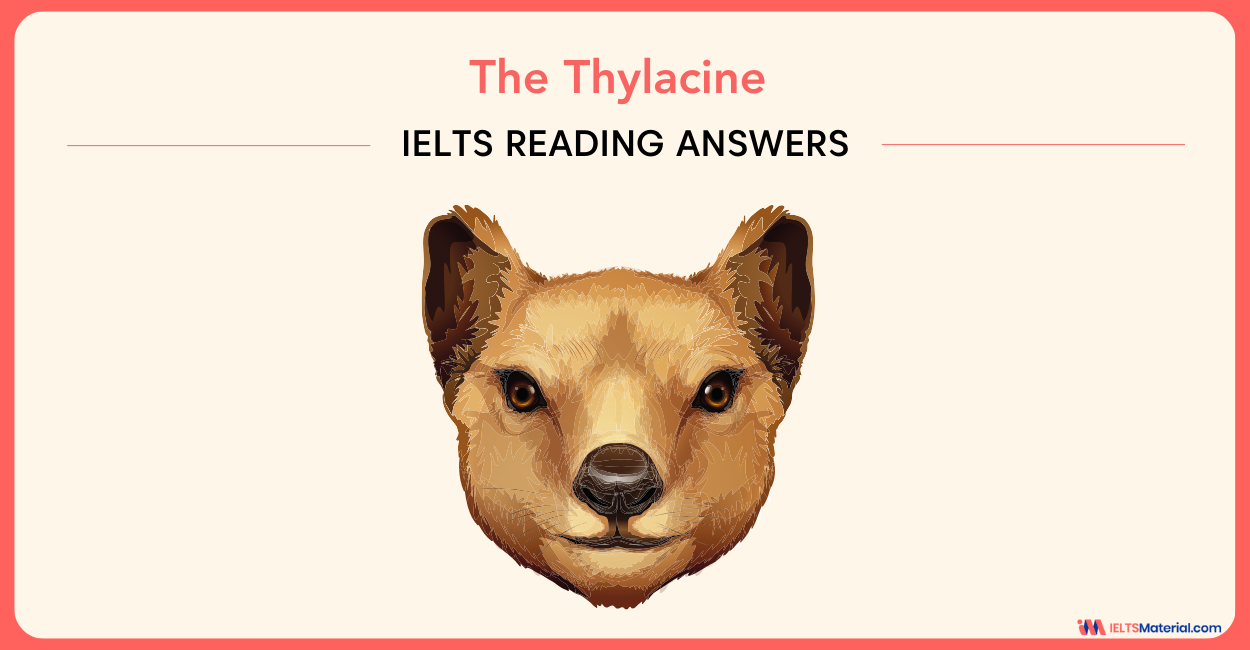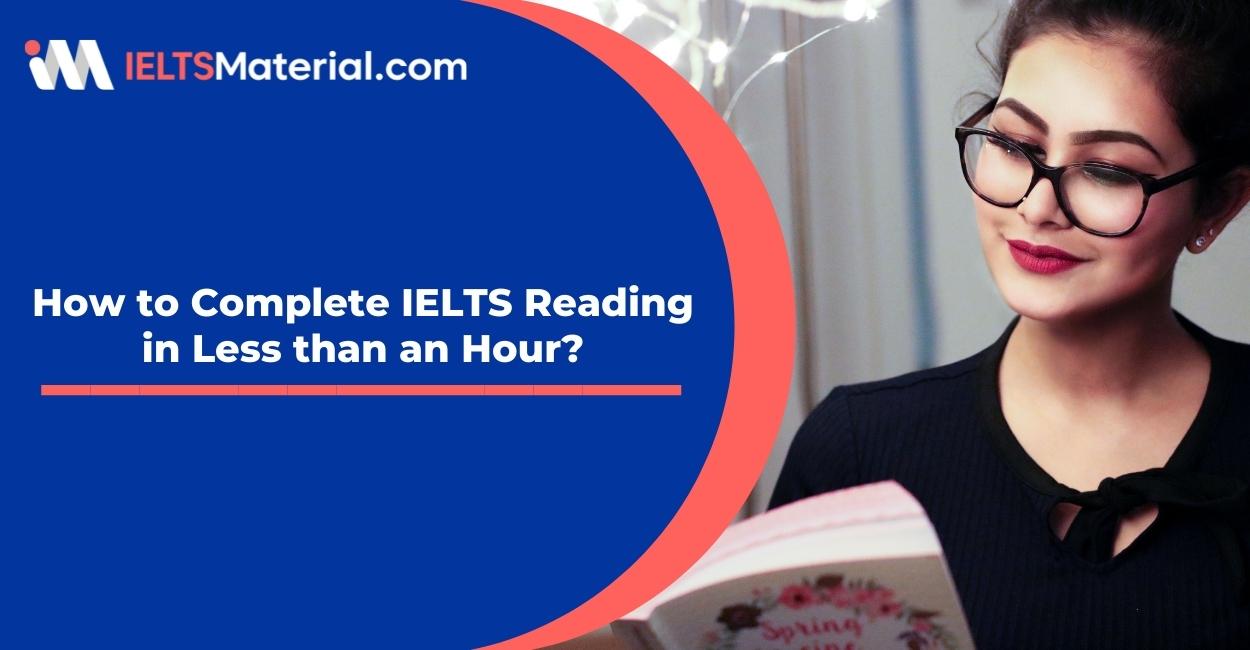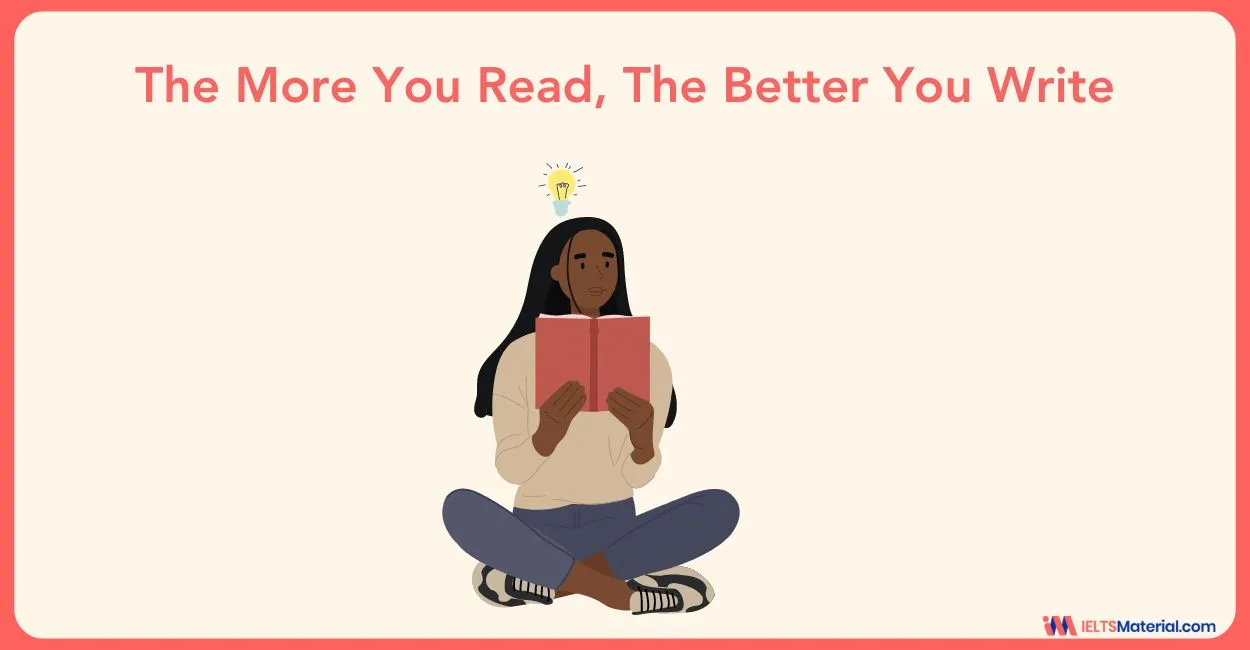How to Complete IELTS Reading in Less than an Hour?
Table of Contents

Limited-Time Offer : Access a FREE 10-Day IELTS Study Plan!
IELTS Reading section is quite challenging, especially when you have to :
- Read 3 long texts (5 in General Training exam)
- Answer 40 different questions
- Transfer your answers to the answer sheet accurately
Managing your time in the test is essential in the IELTS Reading section, as you only get 60 minutes to complete the above-listed tasks.
Tips to prepare for the IELTS Reading test:
1. Learn about the test format
Both IELTS General and Academic passages are extracted from books, journals, newspapers, handbooks, advertisements, etc. Therefore, familiarise yourself with numerous texts and questions before the test day to ameliorate your IELTS Reading skills. It will help you organize your time and avoid any last-minute surprises.
2. Learn about different question types
Knowing details such as types of questions that will be asked in the exam, time allotted to complete them, and the examiner’s expectations will help to improve IELTS Reading test-taking skills. There are 14 different types of questions asked in the exam, such as
- Multiple-choice questions
- Matching Information
- Matching heading
- Sentence completion
- Summary completion
- Note, table, flow-chart completion
- Diagram label competition
- Short-answer questions
- Identify a writer’s view/claims
- Identifying information
- Matching features
- Matching sentence endings
- True/False/Not Given questions
Familiarise yourself with all the different types of questions asked in the exam and practise answering them. Always pay read and pay attention to instructions and prescribed word count. To effectively manage your time, always read the questions first, then passages. Understand what is being asked in each question. Make sure not to get carried away and do not apply your prior knowledge to attempt the questions.
Furthermore, if you struggle to find the answer to a particular question in a minute or two, move on to the next question. Come back to unattempted questions once you are through with the test. This will help you organize your time for the exam.
3. Implement skimming and scanning technique
Skimming is the process of reading quickly. On the other hand, scanning is a method of locating necessary or specific information without reading word by word. To implement this method, first read the question and determine the key details you’ll need for the answer. It will improve your ability to find information quickly. Then, read the passages in-depth wherever it is required. Otherwise, you might not be able to comprehend the meaning of the text accurately.
4. Use context clues
Context clues are hints of information that assist in determining the meaning of unfamiliar words. Context clues are the terms and phrases that surround a word and help describe its meaning. It is important to implement this technique because it enables you to comprehend the essay easily and locate the answers.
5. Distribute your time appropriately
Keep in mind that you only have 60 minutes to answer 40 questions. Therefore, you should spend 20 minutes on each passage for the IELTS Academic Reading exam. In the IELTS General Reading exam, you should spend more time on the third passage than the first two because the last passage is long and more complex, requiring a little more time than the other two passages.
6. Build your vocabulary
Many of the IELTS Reading questions centre on knowing synonyms and paraphrasing the texts for answers. As a result, the exam assesses your vocabulary as well as your comprehension abilities. Therefore, increasing your vocabulary will help you find the right answers much faster.
7. Transfer your answers concurrently
Another crucial step is to remember that you must transfer your answers simultaneously, and there is no additional time for this in the IELTS reading section. It would help if you solved each passage first and write the answers on the question paper. Then, when you’ve finished solving the passage, transfer your answers to the answer sheet right away. This will help you save time and prevent you from rushing at the last minute.
8. Read and practise more often
Form a habit of practising sample papers or reading lengthy texts. It will assist you in improving your accuracy and pace. It would also assist you with becoming acquainted with tough words and phrases. Make sure you’re studying from reliable sources.
Also check:
Explore IELTS related articles

Start Preparing for IELTS: Get Your 10-Day Study Plan Today!
Explore other Reading Articles

Janice Thompson

Nehasri Ravishenbagam

Kasturika Samanta

Janice Thompson








Post your Comments